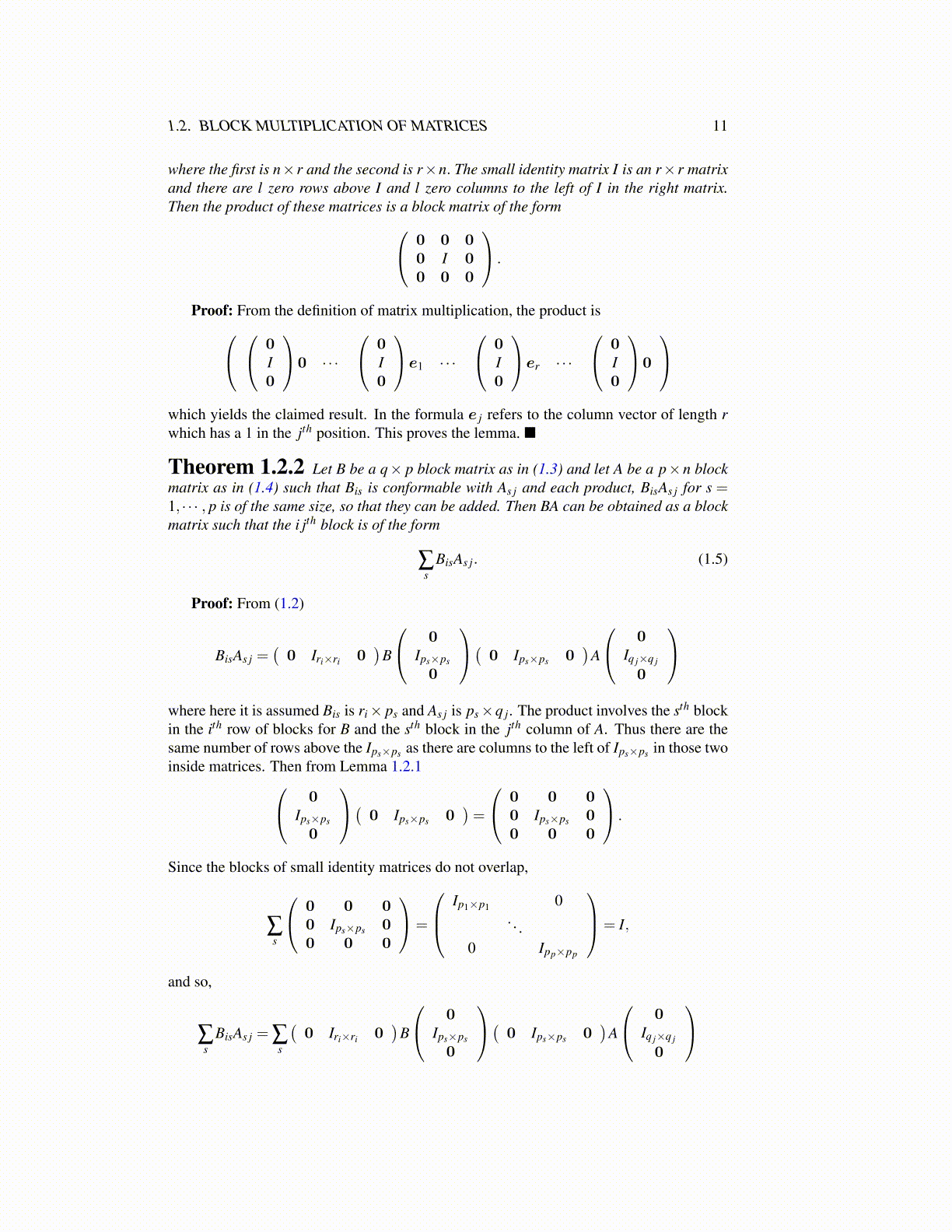
1.2. BLOCK MULTIPLICATION OF MATRICES 11
where the first is n× r and the second is r×n. The small identity matrix I is an r× r matrixand there are l zero rows above I and l zero columns to the left of I in the right matrix.Then the product of these matrices is a block matrix of the form 0 0 0
0 I 00 0 0
.
Proof: From the definition of matrix multiplication, the product is 0I0
0 · · ·
0I0
e1 · · ·
0I0
er · · ·
0I0
0
which yields the claimed result. In the formula e j refers to the column vector of length rwhich has a 1 in the jth position. This proves the lemma. ■
Theorem 1.2.2 Let B be a q× p block matrix as in (1.3) and let A be a p×n blockmatrix as in (1.4) such that Bis is conformable with As j and each product, BisAs j for s =1, · · · , p is of the same size, so that they can be added. Then BA can be obtained as a blockmatrix such that the i jth block is of the form
∑s
BisAs j. (1.5)
Proof: From (1.2)
BisAs j =(0 Iri×ri 0
)B
0Ips×ps
0
( 0 Ips×ps 0)
A
0Iq j×q j
0
where here it is assumed Bis is ri× ps and As j is ps×q j. The product involves the sth blockin the ith row of blocks for B and the sth block in the jth column of A. Thus there are thesame number of rows above the Ips×ps as there are columns to the left of Ips×ps in those twoinside matrices. Then from Lemma 1.2.1 0
Ips×ps
0
( 0 Ips×ps 0)=
0 0 00 Ips×ps 00 0 0
.
Since the blocks of small identity matrices do not overlap,
∑s
0 0 00 Ips×ps 00 0 0
=
Ip1×p1 0. . .
0 Ipp×pp
= I,
and so,
∑s
BisAs j = ∑s
(0 Iri×ri 0
)B
0Ips×ps
0
( 0 Ips×ps 0)
A
0Iq j×q j
0